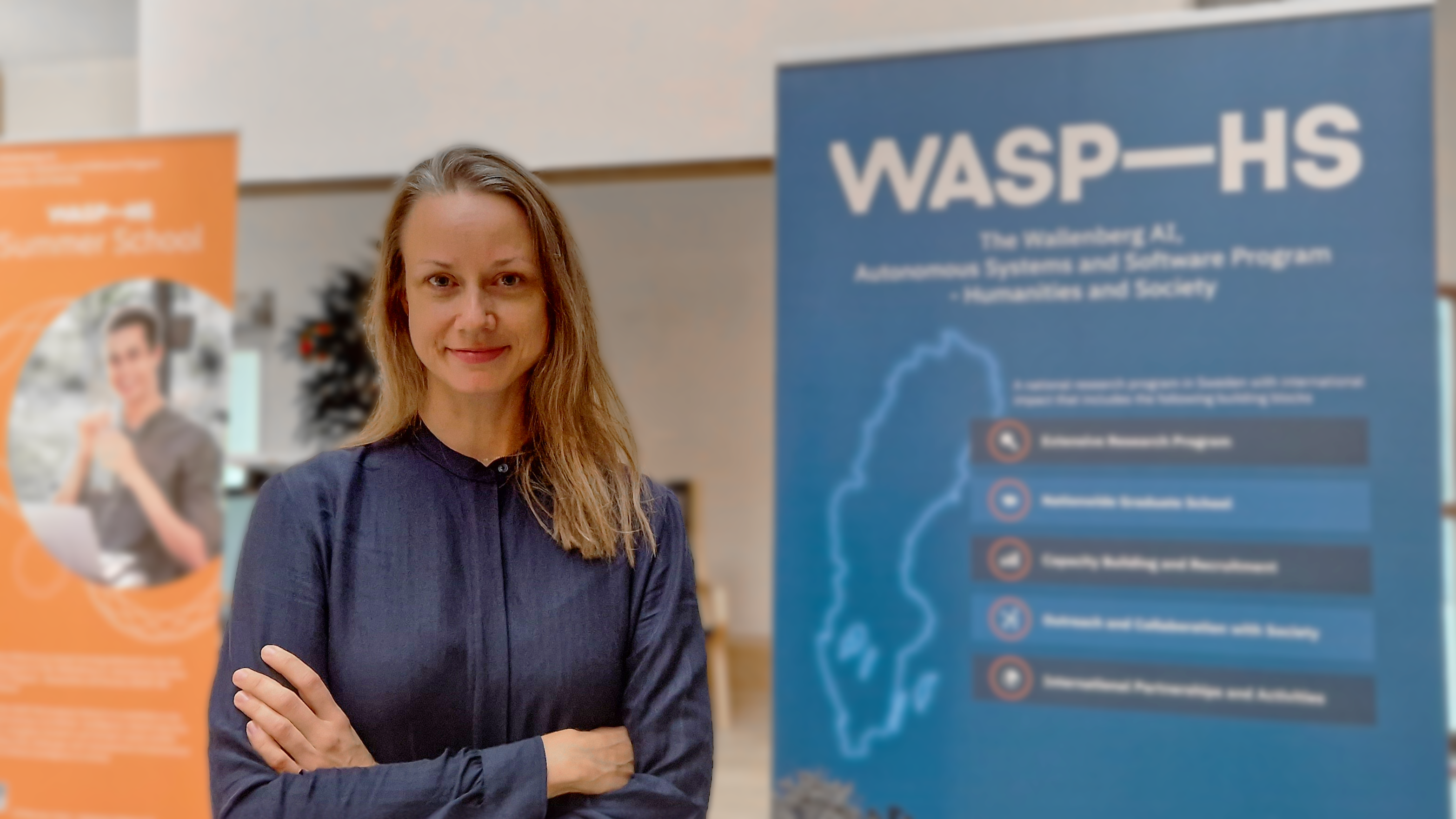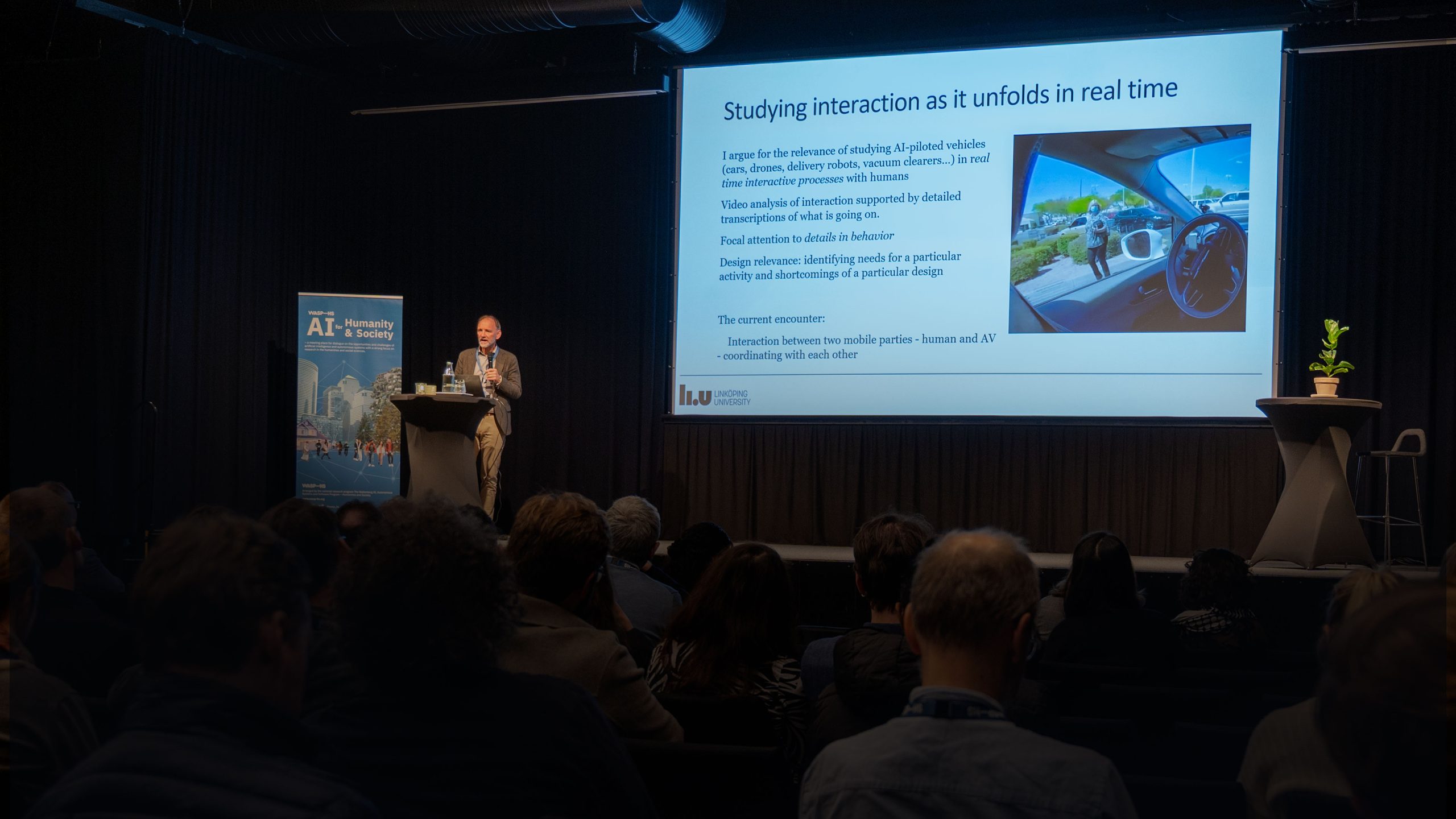Elin Sporrong summarizes her thoughts from the WASP-HS Summer School 2023 that took place at KTH Royal Institute of Technology campus on August 21-25.
Currently, AI is hyped in academia, the industry and in public administration, resulting in new commitments and goals. During this years’ summer school, we took part in the ongoing work within the industry and perspectives on AI from a management perspective, with particular focus on AI as a potentially disruptive phenomenon. The various perspectives on AI, shared by speakers from business, indicated that AI is an umbrella-concept that sometimes denotes a solution looking for its problems. This premise is noticeable in my own research project in which I explore visions of AI in higher education, that teachers are prompted to keep up with.
While the concept of disruptiveness is often connected to radical change and new markets, my working-group chose to focus on values. As part of the production of our poster for the poster-session, we discussed AI as an agenda-setting phenomenon, by its “ability to influence the importance placed on the topics of the public agenda” (McCombs and Reynolds, 2002). Considering the analogy of the hammer in search of its nails, we reflected on which values might be disregarded as nails, and what this devaluation by agenda setting could lead to in society. For instance, what happens when our attention shifts from addressing current pressing problems to creating solutions for the future? Building on these reflections, we highlighted the need for critical perspectives on some potential shifts of attention and premises of questions and statements that underpin the agenda set by AI.
In our closing discussion about the summer school, my fellow PhD-students and I concluded that the critical and reflective perspectives being cultivated within WASP-HS are very much needed. The lack of ethical reflections and narrow scope of cause and effect-focus concerning AI was highlighted in the discussion, but also the lack of clarity of concepts such as “value”. A critical reflection shared by many of us was that the value-concept is often used to justify the development of AI-technologies, but with little detail about who actually gains from the deployment. The underlying assumptions that imbue the AI-development as well as the language about AI deserve more attention, I believe!






